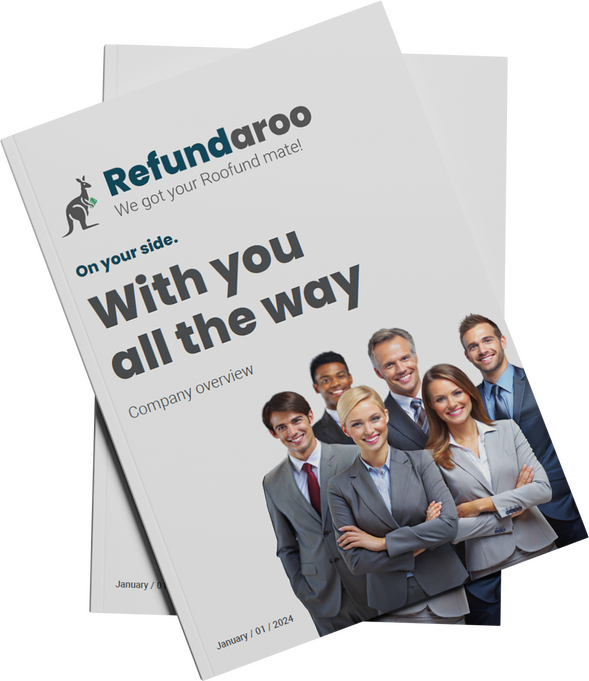Forex trading scams.
Get your money back
If you’ve been ripped off by scammers, get in touch and our team of experts will work to get your money back
Secure your free consultation
Let us know more about your case and we will tell you if we can help you get your money back!
Forex trading scams.
We can help you!
At Refundaroo, our mission is to ensure you’re well-informed about forex scams and fraud. While our main focus is on recovering losses for clients who have been victims of scams or fraud, our ultimate goal is to prevent you from falling prey to these scams altogether. Stay vigilant and informed to protect yourself.
Money back guarantee
The fund recovery process can take time and requires perseverance. It’s essential that our clients are prepared for this and trust us throughout. If you have any doubts, you can request a full refund within the first 14 business days of the process.*

Understanding Forex trading
Forex the world’s largest trading market, sees up to five trillion dollars traded daily. It’s decentralized, lacking a central exchange like traditional stock markets. Instead, millions of traders use various brokers worldwide to execute orders.
Forex trading boasts high leverage, with us regulations limiting it to 50:1, while other countries may offer even higher leverage or no limits. This accessibility, coupled with round-the-clock trading, makes it attractive but also a breeding ground for scams.
Is Forex trading a scam?
In the investment realm, Forex is known as the Wild West due to its accessibility. While major institutions often participate for legitimate purposes, the market is open to individual investors with minimal investment requirements compared to other financial instruments.
However, lax regulations in some countries make the Forex market vulnerable to fraudulent practices. Many unscrupulous brokers operate globally, making it crucial to stick with regulated brokers based in countries with stringent oversight like the US, EU or UK.
Spotting Forex scams
Identifying Forex scams amidst the vast amount of misinformation and predatory practices can be challenging. Here are some red flags to watch out for:
- Broker’s leverage: beware of brokers offering excessively high leverage beyond industry standards.
- Broker’s undisclosed parameters: Avoid brokers with hidden requirements or restrictions on trade management.
- Broker withdrawal rules: Ensure transparency in withdrawal processes; avoid brokers with unclear or stringent withdrawal rules.
- Broker’s spread: Look out for unclear spread definitions or irregular spread increases.
- Signal sellers: Be cautious of individuals or companies promising guaranteed profits or unrealistic returns through signal services.
- Broker spam: Avoid recommendations from sources promoting a single broker, as they may have vested interests.
- Educational services: Verify the credibility of trading education providers, avoiding outdated or misleading information.
- Automated trading: Exercise caution with forex robot trading systems or claims of ai-based trading, as genuine ai systems are rare.
- Flashy advertising: Stay away from services flaunting extravagant lifestyles, as they often signal scam operations.
Recovering from Forex scams
Recovering funds from a Forex scam is challenging, particularly with unregulated brokers. However, reputable fund recovery companies like Refundaroo specialize in assisting victims of Forex scams, offering professional services and expertise to maximize returns.
If you’ve been a victim of a Forex scam, contact us for a free consultation and let our team guide you through the recovery process.
Is Forex a pyramid scheme?
No, but scams and fraudsters do create pyramid schemes. This behavior is prevalent across all traded financial markets. If a broker offers to put you into a ‘team’ to build a network, it’s likely a pyramid scheme.
Read our related article: Refundaroo Pyramid Scheme Guide: 4 varieties of Pyramid Schemes
Who regulates the Forex markets?
Various major regulatory bodies around the world oversee Forex markets. In the US, brokers are regulated by the NFA (National Futures Association) and the CFTC (Commodities Futures Trade Commission), but not by FINRA (Financial Industry Regulatory Authority). In the UK, the primary regulatory authority is the FCA (Financial Conduct Authority). In the EU, each member state has its own regulatory agency, but the standards they must follow are set by MIFID (Markets in Financial Instruments Directive).
How do I know if my broker is legitimate?
Great question! A key indicator of a legitimate broker is whether they disclose their registration with a specific regulatory authority like the FCA (UK) or CFTC (US). Additionally, reading reviews from current and former customers can help determine their legitimacy.

Forex trading scams.
Recover your lost funds
The Forex market is unfortunately a prime target for scammers. Given its reputation as a legitimate investment avenue, it’s often difficult for individuals to distinguish between fraudulent brokers and genuine ones. Many victims may not even realize they’ve fallen prey to a scam, attributing losses to simply having a “bad trading day”. If you suspect that your financial losses extend beyond normal market fluctuations, reach out to us today. If your broker is indeed fraudulent, there’s a chance we can assist in recovering your funds.
Give us details
Tell us about your case and we will let you know if we can help you secure your assets.

